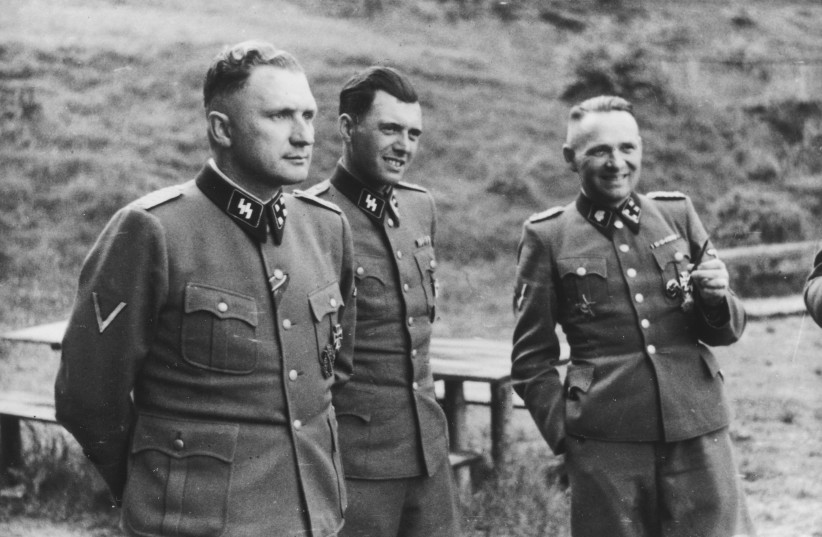Jonathan Glazer, the director of the Best International Feature Academy award-winning Holocaust film, "The Zone of Interest," was "vile" and "auto-antisemitic" for saying during his award speech that [he] belonged with those who "refute [both] their Jewishness and the Holocaust being hijacked by an occupation," Diaspora Affairs and Combating Antisemitism Minister Amichai Chikli (Likud) said to the Jerusalem Post on Monday.
Glazer was the "next useful idiot who stuck a knife in the back of his people and in the backs of women who were raped and then shot in the head afterward, in children who were slaughtered in their beds, in entire families who were burned alive," Chikli said.
"There is no forgiving such vile types – auto-antisemitic Jews, from Judith Butler until last night's idiot, but there is no reason to get excited over the phenomenon, it has accompanied us for generations," Chikli said.
Chickli alludes to the history of Jews
Chikli continued, "As one of Israel's greatest leaders, Yigal Alon, said, 'Amongst the Jews there are always groups of people whose past weighs on them, and they are the first to conduct plastic surgeries to their spiritual-national physiognomy, in order to adapt it to the latest cosmopolitical fashion. Granted, it is true that Jews had multiple reasons to tire from 'bearing the burden', but they [also] had and have all of the reasons to treat with respect their past and themselves, to be as they are in the annals of culture. Because only he who has courage to be himself, contributed the largest contribution to universal culture."
Hadash-Ta'al MK Ahmad Tibi later on Monday commended Glazer, saying in a press conference ahead of his party's weekly meeting on Monday that they he was "brave" and had exhibited "high morals" in mentioning the "dehumanization" amidst the "images of atrocities" coming out of the Gaza Strip.

Likud MK Danny Danon, who served as Israel's Ambassador to the UN, also addressed the comments.
"This is an important film. It's a shame that a Jewish director took advantage of the stage that he was given to make antisemitic remarks comparing the Holocaust to the war of no-choice that was forced upon us. This is not new - during the Holocaust also there were Jews who acted against the Jewish people," Danon said.
In a daily briefing, Ms. Ilana Stein, Spokesperson at the National Public Diplomacy Directorate, also addressed the issue.
"To think that we would exploit the Jewish catastrophe that is called the Holocaust where six million people died in the most awful ways, is despicable," Stein said.
"Hamas showed how it massacred us. And this is what we are fighting against. A massacre. A terror organization that says that it wants to be from the river to the sea, and that means that they want the whole state of Israel to be free of Jews. Does that remind you of somebody, saying that a whole area should be free of Jews? That is what they are saying. And for that to happen they want to kill and murder and slaughter and rape so that this whole area will be free of Jews. So, this is the right context to look at the Holocaust and October 7, [at] some similarities that they have," Stein said.
Glazer’s German-language film is about the family of the commandant of Auschwitz living on the death-camp grounds.
After thanking the Academy, his cast and producers, and Auschwitz-Birkenau State Museum, Glazer read from a written statement, although he was clearly emotional, as he spoke about the war in sentence fragments, saying, “All our choices were made to reflect and confront us in the present, not to say that what they did then, rather than what we do now. Our film shows where dehumanization leads, at its worst, it shaped all of our past and present. Right now, we stand here as men who refute their Jewishness and the Holocaust being hijacked by an occupation which has led to conflict for so many for so many innocent people.”
At this point, Glazer was interrupted by applause, and after a pause he went on to say, “Whether the victims of October the 7th in Israel or the ongoing attack on Gaza, all the victims of this dehumanization. How do we resist?”
Hannah Brown contributed to this article
